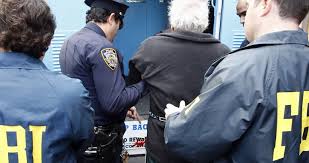My jaw dropped last Tuesday when I read a blog post by Ohio-based management defense attorney Jon Hyman.
Hyman posted the Department of Justice criminally charging an employee for allegedly defrauding his employer by submitting a forged doctor’s note stating he had COVID-19. Human Resources and management-side defense social media share a near obsession with Family Medical Leave Act (FMLA) fraud by employees.
So why can HR now sic the FBI on employees who forge off-work notes?
The CARES Act, interstate commerce and taxing power
The answer to this question is the CARES Act. Passed in response to the COVID-19 crisis, the CARES Act amended the FMLA to provide some employees with paid leave related to COVID-19. The CARES Act also used federal funds to expand unemployment benefits related to COVID-19.
Normally state law would govern the prosecution of small-time workplace fraud under crimes like forgery and unemployment fraud. But a federal bailout creates federal criminal jurisdiction. The United States Department of Justice is aggressively prosecuting COVID fraud. Some employer-advocates question the use of the federal power to regulate interstate commerce for the good of employees. But the interstate commerce clause also expands the ability to federalize crime. It seems like employer-advocates are welcoming the expansion of federal authority to prosecute fraud by employees.
Federal taxes partially fund unemployment benefits. This would give the federal government the power to federalize unemployment fraud through the taxing power granted to Congress by the Constitution.
The real COVID fraudsters
The Georgia case is the first known incident of an employee being prosecuted for forging a medical note. COVID-related fraud mirrors workers’ compensation fraud in that most fraud is not committed by employees. Apparently organized crime is submitting false unemployment claims. Some individuals and businesses are falsely submitting claims under the Paycheck Protection Program. If an employee suspects their company is abusing the Paycheck Protection Program they could bring a claim under the False Claims Act.
But while low level employees are not committing the vast majority of COVID fraud, low-level employees are the easiest to prosecute. Prosecuting low-level employees for COVID fraud serves at least two purposes for employers.
Reopening and unionizing
As the perceived threat of COVID recedes, many businesses are reopening and employees are returning to work. Employers complain that some employees are reluctant to return to work because of enhanced unemployment benefits. However many employees are expressing safety concerns about COVID exposure. Publicizing the prosecution of COVID fraud by employees calls into question the legitimacy of employee safety concerns. Criminalizing COVID fraud by employees also allows employers and their mouthpieces in the media to portray workers worried about COVID as welfare cheats.
The use of state power on behalf of employers against employees serves another purpose. Mike Elk of Payday Report tracked walkouts and strikes related to the COVID 19 pandemic. Management-side pundits are also expressing concern about rising pro-union sentiments by employees. Prosecuting employees is one way to intimidate employees who want to form unions or engage in collective action in the workplace.


